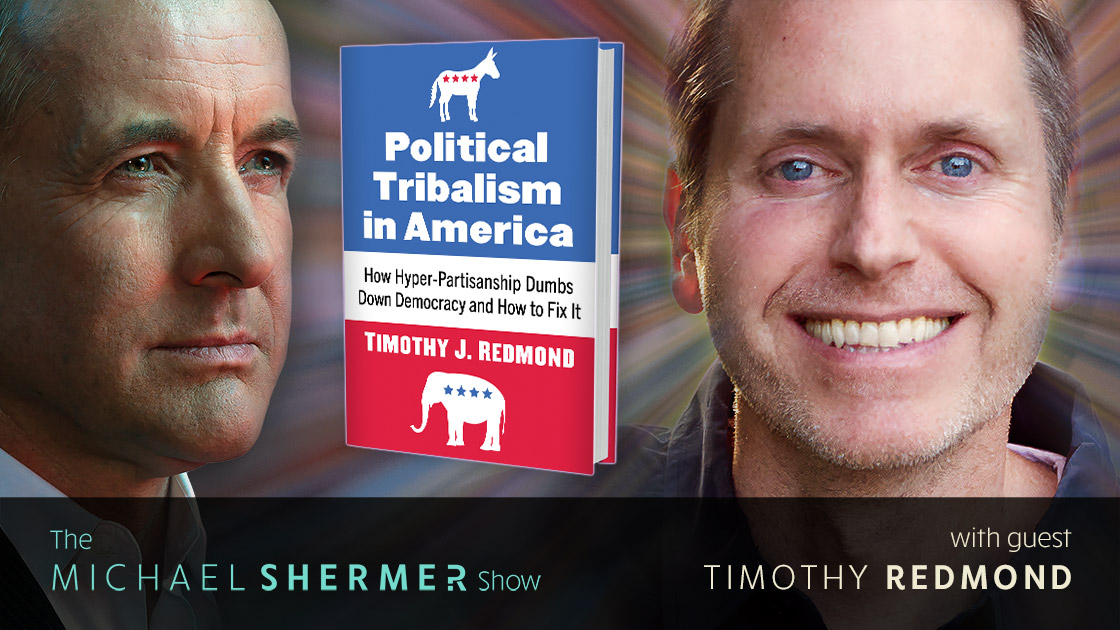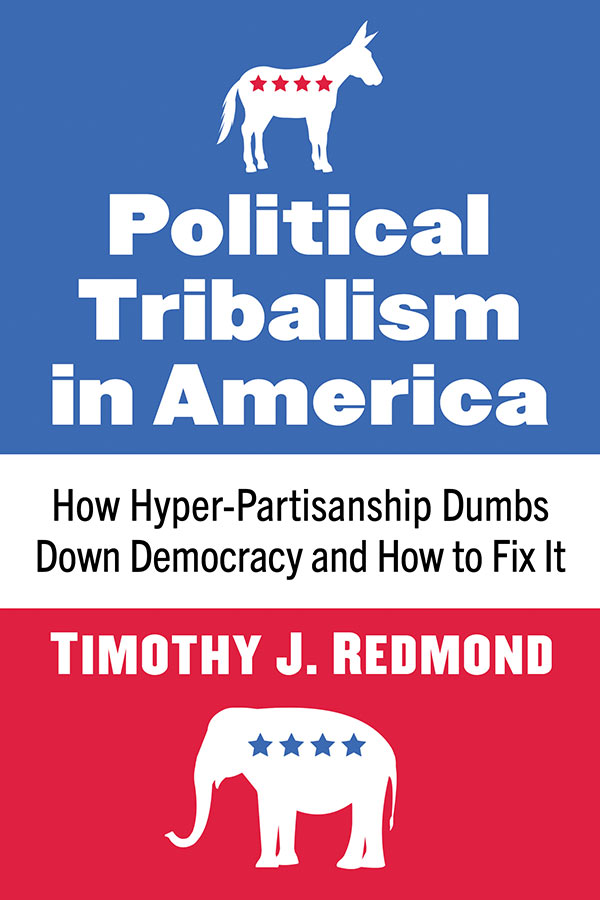The democratic ideal demands that the citizenry think critically about matters of public import. Yet many Democrats and Republicans in the United States have fallen short of that standard because political tribalism motivates them to acquire, perceive and evaluate political information in a biased manner. The result is an electorate that is more extreme, hostile and willing to reject unfavorable democratic outcomes.
Shermer and Redmond discuss:
- why we have political parties
- why we have a duopoly: a leading theory, referred to as Duverger’s law, states that two parties are a natural result of a winner-take-all voting system
- tribal theory of democracy
- parties vs. policies
- Are we living in a post-truth, fake-news, alternative facts world?
- How do we know political polarization is worse now than in the past?
- acquiring, perceiving, and evaluating political information
- evaluating: false political information, political numbers and arguments, claims of rigged election
- Whataboutism and moral equivalency: Fox News vs. MSNBC/CNN
- What news sources should we trust, and how can we tell?
- illusion of understanding
- illusion of truth effect
- cognitive responsibilities of citizenship
- cognitive biases and political polarization
- losers’ consent to election outcomes
- winners’ magnanimity
- myside bias and numeracy vs. innumeracy
- solutions to the polarization problem.
Timothy J. Redmond received his PhD in political science from the University at Buffalo. He is an award-winning educator and author of over one hundred articles on critical thinking and politics. He is a professor at Daemen University where he teaches a political science and history course for education students.
About the Book
In Political Tribalism in America, Timothy Redmond provides a host of actionable strategies that are designed to reduce the influence of political tribalism in our lives. The book includes instructions for plumbing the depths of political views; evaluating sources of political information; engaging in difficult political conversations; appraising political data; and assessing political arguments. This how-to guide is a must-read for partisans who want to become more critical political thinkers.
If you enjoy the podcast, please show your support by making a $5 or $10 monthly donation.
This episode is sponsored by Wondrium:
This episode was released on April 25, 2023.











